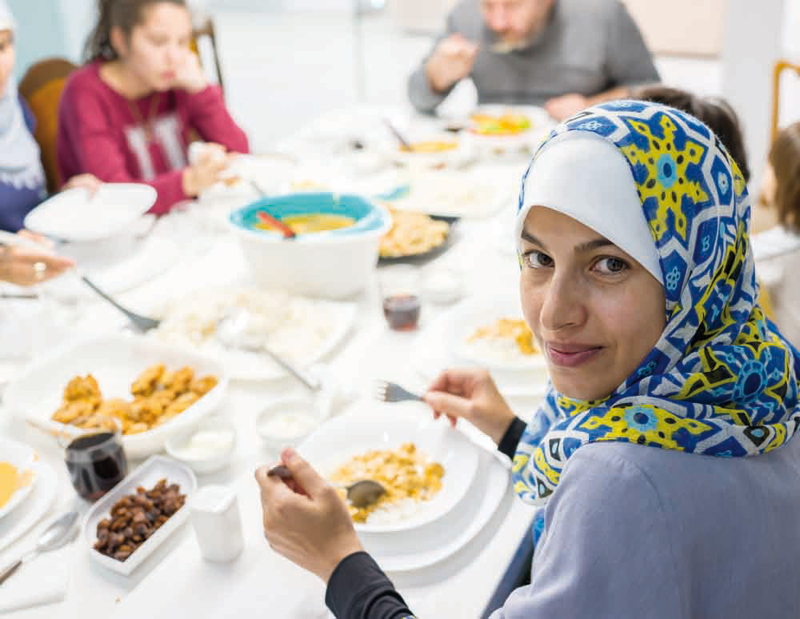

Banana is undoubtedly a fruit with high proteins and is good for health. And so is milk. But combining both for iftar or post breaking fast can create problem for your digestive system and throw things out of gear. And it doesn’t end there. Experts say there are a vast range of foods that can wreak havoc hence should not be taken in combination with another. “Those who pay least attention to the combination of foods for iftar, taking wrong combinations of foods can be harmful and land you in several short-term to long-term illnesses,” Mini Padikkal, Clinical Nutritionist, NMC Specialty Hospital, said.

“We all are very careful about our health and of course we are told to take fruits, water and vegetables. But what we are not told is that pairing up certain foods together can undo all their good and instead, create harmful effect to our body,” she added.
One of the common food combinations that may bring more harm than good to human body is cold drink with cheesy food which may sound tempting but definitely not healthy. If you are a cheese lover, then avoid soft drinks along with it.
“The simple reason is that carbonated drinks contain high amount of fructose and promote obesity due to high sugar content. Similarly, cheese is rich in fat and increase obesity.”
Similarly, having fruits after a meal is not a scientific way of how to eat them. Instead, the ideal way to consume fruits is one hour before the meal as they work as an appetiser. If fruits are consumed immediately after a meal, all the nutrients don’t get absorbed properly.
Taking yoghurt with fruit can diminish digestive fire, change the intestinal flora, produce toxins and cause sinus congestion, cold, cough and allergies. Nonetheless, if you can’t resist the temptation of a yoghurt parfait, always prefer some natural unflavoured yoghurt. Also, mixing a little bit of honey, cinnamon and raisins instead of sour berries too can secure you in a safe place.
Experts have also advocated to avoid water intake in between or immediately after a meal as it causes discomfort and may interfere with your digestion. Keep a gap of at least 30 minutes between your meal and water intake.
“We all take tea as an ingredient part of iftar meals or immediately after a meal. Tea contain tannins which hampers absorption of nutrients from the meal. Tannins are a yellowish or brownish bitter-tasting organic substance used in leather production and ink manufacture. These tannic acid that caffeinated beverages contain can bind food iron and protein to prevent absorption of important nutrients.”
“The holy month of Ramadhan is a period for revitalising one’s internal organs along with mind body and soul. One needs to have a balanced diet and enjoy their meals by avoiding unhealthy combination of these foods so that he or she wouldn’t have to be a visitor of a nearby hospital immediately after the holy month of Ramadhan for wrong consumption of food,” Padikkal said.
Eat vegetables, nuts to shed weight
Want to shed those extra kilos? Go vegetarian. According to new research, eating vegetables, grains, legumes, fruits and nuts may be almost twice as effective in reducing body weight as conventional low-calorie diets.
The vegetarian diet led to reduction in muscle fat which helped improve glucose and lipid metabolism as well as an average loss of 6.2 kg compared to 3.2 kg for the conventional diet, researchers said.
“The finding is important for people who are trying to lose weight, including those suffering from met-abolic syndrome and/or Type 2 diabetes. It is also relevant to anyone who takes their weight management seriously and wants to stay lean and healthy,” said lead author Hana Kahleova from the Physicians Committee for Responsible Medicine in Washington DC.
For the small yet significant study, published in the Journal of the American College of Nutrition, the team randomly assigned 74 people to follow either a vegetarian or a conventional diet.
Both diets were restricted by 500 kilocalories per day compared to an isocaloric intake for each individual.
Both vegetarian and conventional diets caused a similar reduction in subcutaneous fat — fat under the skin.
Subfascial fat — fat on the surface of muscles — was only reduced in response to the vegetarian diet. Intramuscular fat — fat inside muscles — was more greatly reduced by the vegetarian diet.
“This is important as increased subfascial fat in patients with Type 2 diabetes has been associated with insulin resistance while reducing intramuscular fat could help improve muscular strength and mobility, particularly in older people with diabetes,” the researchers noted.
“Vegetarian diets proved to be the most effective for weight loss. However, we also showed that a vegetarian diet is much more effective at reducing muscle fat, thus improving metabolism,” Kahleova said.
KABEER YOUSUF with reports from IANS
Oman Observer is now on the WhatsApp channel. Click here



